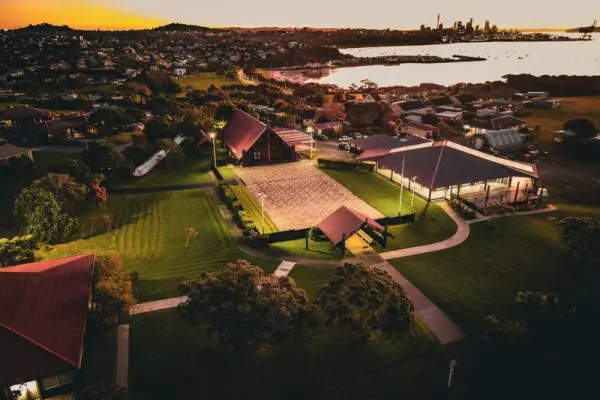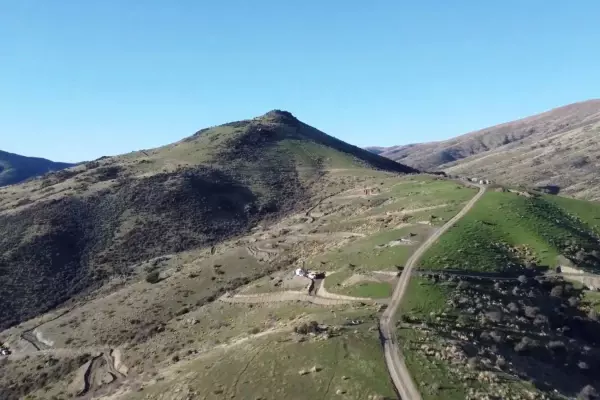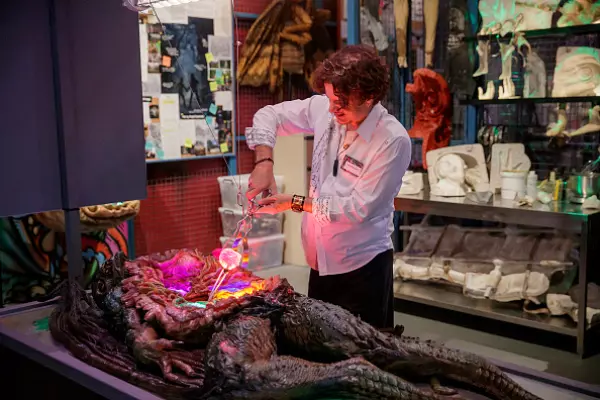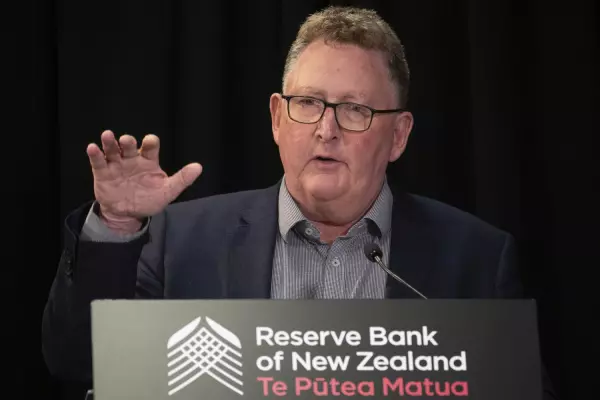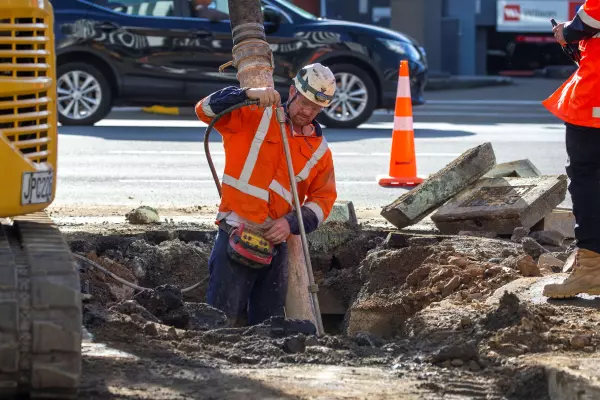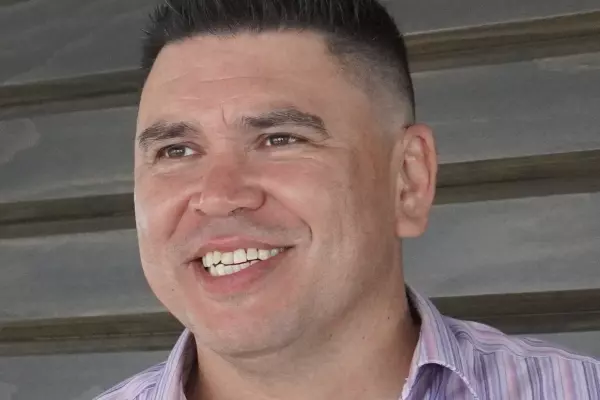A Māori business network believes it has a solution to lift equity for Māori – it just needs the New Zealand government to see its vision.
The chief executive of Whāriki, Trina Tamati, is making ambitious moves after just four months in the hot seat. She has a goal to double the Māori economy.
It's a big goal but one she and her team believe they can achieve.
The Māori economy nationally is worth around about $70 billion, she said.
There are about 60,000 small-to-medium Māori businesses and sole traders across the country. Tamati said Whāriki can build the capability of those businesses – and growth will follow.
Building stronger pakihi (businesses) would decrease unemployment rates because Māori are more likely to employ Māori, she said. She would like every existing business to employ three more Māori every year for the next five years on good wages and meaningful career pathways.
Tamati said this would drastically impact prison populations, poverty, crowded housing, and over-dependency on hospitalisation.
"If we can just shift the pay, shift our people into employment and off benefits, all that changes, especially for our children.
“Not only are we doubling the Māori economy, but we are also creating intergenerational change – a generational shift and massive change for our people.
“We know that we can double the economy, but we also know that we can systematically change all those negative social outcomes.”
Part of her plan is linking Whāriki with others who share the vision.
Tamati recently signed an agreement with Callaghan Innovation for a strategic partnership to support Māori business innovation. The partnership is part of Tamati’s plan to connect Māori businesses to research and development (R&D) opportunities to accelerate the growth of the Māori economy. This is the first formalised government partnership for the network.
It follows a formal agreement she signed in April with Whānau Ora Tāmaki collective, Te Pae Herenga o Tāmaki, to improve the Māori economy in Auckland.
Tamati said she was recently approached by wholesale food supplier Gilmours because it wanted to employ more Māori. She said they were engaged, asked the right questions and wanted to provide solutions for Māori.
A meaningful career pathway with Gilmours and other businesses is key, she said, because it will uplift whānau in the community by offering secure employment.
First to be laid off
Māori and Pasifika were often the first to be laid off, as was seen during the recent flooding and cyclone emergencies.
“What’s probably not obvious is that Māori and Pasifika were adversely affected, as most of our people are in casual jobs, frontline roles and warehousing roles.
“All those roles are easy to cut. So, we were the first to be displaced.”
The productivity commission has recommended the government boost the number of Māori businesses securing public contracts.
In response, the government recently increased contract allocation to pakihi Māori from 6% to 8%.
But Tamati said this was a double-edged sword.
“It’s all very well to offer 8% but, for a small business, they've got to have so many staff employed, they've got to have so much cash in the bank, they've got to be able to put down deposits.”
Tamati said an example of this was NZ government housing provider Kainga Ora. Some of the contracts asked for a million-dollar deposit, she said.
“What pakihi has a million dollars sitting in their back pocket to go, 'I could do that'?"
So, is it enough?
“To answer your question, absolutely not. Where are the Māori businesses that can respond?”
Tamati said many of the businesses her team works with don't have the ability to successfully tender for the contracts now, but she believes they could in the future – with the right investment and support.
“We're trying to build the capability up quickly, so that our pakihi have the opportunity to get in there. But it's just not happening quite fast enough.”
Process too complex
Another reason businesses struggled was because the government tendering process was convoluted and complex, she said.
“Many Māori can't answer the tender document. It's like 25,000 pages long, uses language that's not familiar to us and asks us for stuff we don't have, such as 1,000-page business plans and exit strategies.
“Our businesses are going 'We're just a three-person lawn-mowing business, and we want to be able to win the contracts and we want to be able to respond.’
“But the process of responding is too hard – let’s make this process easy, then that's equity.”
We don’t trust the system
During the devastation after the cyclone and floods, Tamati said her team supported Māori businesses struggling to claim insurance and grants.
“We don't trust the system. We get let down by the system constantly.
“And then, when initiatives do come out that are designed to help us, they're not attractive or appealing to us."
Many Māori business owners had bigger priorities during the emergencies, she said.
“They were community minded – helping feed people, clothe people and look after homeowners and children who couldn’t go to school, by opening marae doors for anyone and everyone.”
Tamati said for Māori in emergency situations, the priority was to help the community, rather than fill in the paperwork for funding.
When the floods and cyclone relief did arrive, the government help came via the Auckland Chamber of Commerce, but many Māori business owners just weren't ready, Tamati said.
With Whāriki’s help, the success rate of pakihi Māori accessing much-needed relief funds tripled.
“Māori were still helping their communities and they had about a 5% rate of Māori apply. We stepped in and that went up to 16.7%.”
Whāriki helped by ringing insurers and supporting business owners to fill in the forms.
“No disrespect to the local chamber, because they do great work, but when a Māori business sees that it’s a non-Māori organisation giving out the grants, many think they’ve probably got no luck because we're not overly savvy with the government processes.”
She said there are so many obstacles that knock the confidence of Māori, they don’t even try to engage.
Tamati is confident that Whāriki is making a tangible difference. “You can see the difference it makes when we actually are given the time, given the support and walked through things.”
She said her team is building a new website, setting up a home base, hosting workshop events and bringing together hundreds of businesses to help them.
“And that's the point of our workshops – it’s about building resilience in your business.”
Wāhine Māori business owners are unicorns
Tamati said wāhine (women) Māori made great business owners and operators. Most of the pakihi Māori who are engaged with Whāriki are female-owned, “probably about 75%”.
She said she thinks it’s because it's ingrained in wāhine to think broader than just what's in front of them.
“We are unicorns, and this is why we are successful – in a heartbeat, we can go from being a Māmā to 10,000-children-to-a-school teacher, bus driver, lunch lady, then on to the dinner shift.
"We’re the taxi driver that gets everyone to sports training and might even coach the sport. We’re still breastfeeding pēpi [baby] all whilst supporting the husband and his job or his business.”
She said wāhine keep all these responsibilities and still run their businesses, often as a side-hustle.
“They're also sometimes in full-time employment, as well as running their business online, which is insane to me. I just say ‘Wow, how do you do that?’."
She said Māori women just keep going, despite what the world throws at them.
“We are successful because we just don't give up.”
Tamati also said wāhine Māori see what intergenerational trauma has done to their communities, and lead with empathy.
“We know what needs to be healed and we get it. And we know that the kaupapa is far more than just our business, it's more than just us.
“Whatever it takes for the betterment of our people, we do that.”
Challenging the prime minister
Tamati has been asking the government for more support.
When she found herself at an event with prime minister Chris Hipkins recently, she asked him what he was doing for Māori businesses.
“We know there's an 8% unemployment rate for Māori and we know there are 60,000 Māori businesses across the country.
“I wanted to know what the government was doing to support those businesses so that they can grow and can employ those people.”
She said the prime minister couldn’t answer her, but she is confident that she can help.
“I’m constantly challenging ministers and the prime minister to make them aware that we've got all these pakihi and getting 8% contracts. Fantastic, but how do we get them ready to win procurement contracts, ready to deploy Māori people?”
Tamati said Whāriki isn't now funded by the government, but she would welcome it.
“We don't get any government funding at all. So, I'm trying to get in there and push for Māori economic development.”
Tamati said she believes the Pacific Business Trust is funded by the Ministry of Business, Innovation and Employment (MBIE) to build Pacific people. Tamati said the same mana should be given to Māori businesses on a national level.
She said Te Puni Kōkiri, the principal policy adviser on Māori wellbeing and development (TPK) offered some support but didn't support businesses.
Tamati would like to see programmes that support Māori businesses to be employers of Māori.
She said currently, there aren’t any such programmes.
“The hard question is what actually is being done to build capability programmes for Māori businesses growth?
“If you have solutions, we welcome you with open arms at Whāriki. It's free to join and there's nothing other than us trying to build you up.
"If you are wanting to start up, build up, grow, or are in a position to employ other Māori people, talk to us.”
Colonisation had beaten business entrepreneurial nous out of Māori, says Tamati, but she is seeing it come back. The rapid mobilising in emergencies showed that.
She is willing to work with anyone who wants to see the Māori economy – and NZ – thrive.
“If you like the sound of doubling the Māori economy, let's do it. Partner with us come and talk to us about how we can work together.
“This could be life-changing for some of our whānau.”
Minister for Small Business Ginny Andersen said the government is committed to supporting Māori businesses grow and thrive.
She said support is given across several ministries and agencies, including MBIE and TPK, as well as Te Kupenga – the Māori Economic Development Unit.
Andersen said MBIE’s small business service provides capability development and resources to support all small businesses, but is actively developing strategies, processes and services to support Māori businesses in particular.
The ministry wanted to understand the challenges for Māori businesses so it has engaged a specialist consultant to help businesses engage with government services, develop a Māori business engagement strategy, and conduct a full evaluation of all services, resources and channels. This will improve accessibility and relevance for pakihi Māori, she said.
Andersen said the introduction of the progressive procurement policy will increase diversity among suppliers. Every year, $51.5 billion is spent on government procurement. Three months ago, the target increased from 5% to 8%. after exceeding the target by 1% in the last financial year.
Willie Jackson, the minister of Māori development, said government agencies reported over 3,200 contracts were awarded to Māori businesses across the public sector in the last financial year, worth a total value of about $930 million.
“These numbers translate into tangible results for businesses who wouldn’t previously have contracted goods or services to the government."
It meant job opportunities, improved whānau wellbeing and increased economic prosperity for whānau, hapū and iwi Māori.
Jackson said the government has engaged with more than 600 Māori businesses across 25 industries on government procurement over two-and-a-half years.
Building Māori economic resilience is a key priority for Te Puni Kōkiri, the Ministry for Māori Development, he said.
Jackson said the ministry’s Māori Enterprise team worked across the motu with Māori businesses, advising on legal issues, accounting, marketing, governance, human resources, health and safety, and strategic business planning.





